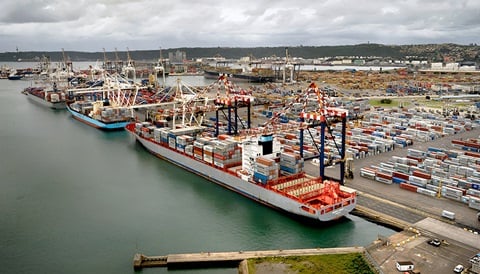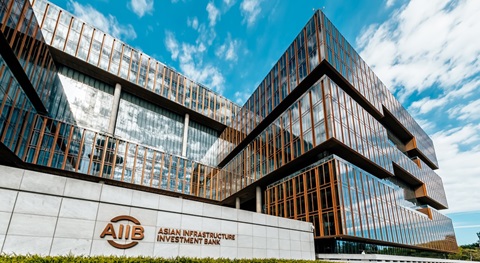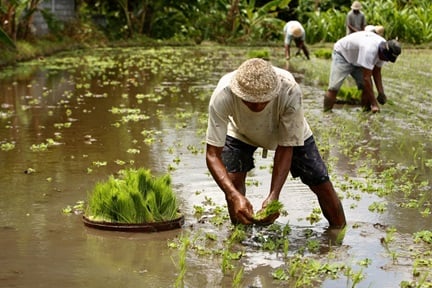Rwanda public housing needs investments
The Rwandan government steps in to make up for the lack of private sector investment in public housing.
By Johan Burger

Kigali faces an acute shortage of decent public housing and with the population of capital projected to double from the current 1.6m to 3.8m by 2050, the demand for affordable housing is set to rise.
According to The National Institute of Statistics, in Kigali, 13% of the city’s inhabitants earn less than US$38 per month; 54% earn between US$38 and US$225 per month; and 21% have monthly incomes between US$225 and US$678.
Unfortunately, it seems that the housing targets are not being met, with the result that people must wait longer to obtain housing. To expedite the delivery of more housing units, the Rwanda Housing Authority (RHA) had acquired 38 hectares in Kigali seven years ago at a cost of approximately US$4m. To date, the project on the 18 hectares in the Ndera sector had not yet started, a situation ascribed to a lack of private investors/developers interested in the project. On the 20 hectares in the Kanombe sector, only seven hectares had been utilised, with only 420 units representing 41% being constructed by March 2021, nine months after the project was supposed to have been completed. One challenge seems to be the lack of basic infrastructure support, as investors were reportedly waiting for the government to deliver.
There is currently a need for 217,000 units in the country, which will increase to 310,000 units by 2032. As previous efforts to boost the supply of decent affordable houses have yielded minimum results, and to meet this demand of at least 310,00 units, the RHA has identified 6,100 hectares where the private sector will construct affordable houses. The Director General of the RHA, Felix Nshimyumuremyi, announced in early October 2021 that this land will be allocated free to private developers as part of a wide range of subsidies to counter the rising cost of housing in Kigali.
There are seemingly a few challenges the authorities must address. According to experts, the cost of owning a house is rising faster than people’s income. Low-income earners and analysts have also stated that the "affordable housing" projects only cater for the middle and upper classes of society and that the incomes of the low-income segment are too low to even afford. Affordable housing projects cater for people with a monthly income of between approximately US$200 and US$700.
Housing project developers have also expressed low interest in constructing houses with a price ceiling (approx.) US$35,000 – currently defined as affordable. But real estate developers view the affordable housing projects as not being profitable. They also complain about the high cost of financing. The Covid-19 pandemic has brought its own challenges, leading to an increase in transport costs and disrupting the supply chain of construction materials.
To address these issues, the Rwandan government is considering playing a direct role. In addition to the free land referred to above, the RHA is designing a social rental programme (rent and rent-to-own scheme) to make access to decent housing for low and extremely low-income earners more accessible. In addition, the government has waived VAT on imported and locally made construction materials for affordable housing projects exceeding US$10m.
Rwanda’s housing sector directly contributes 9.5% to Rwanda’s GDP of US$11bn. However, its impact is constrained by a lack of finance, both in the form of investment into affordable housing construction and access to finance for home owners or renters.
To address the scarcity of funding for Rwanda’s growing housing sector, the African Foundation for Development (AFFORD) has identified the diaspora as a potentially limitless investment source for job creation, profitability, and economies of scale. These new sources of finance through the diaspora will contribute to GDP and provide homes for its people. According to the World Bank, the African diaspora contributed US$37bn in remittances to Sub-Saharan Africa in 2020. Apparently, a significant proportion of these remittances are used as Domestic Direct Investment (DDI), particularly aimed at real estate investments.
AFFORD believes it is crucial to disrupt the traditional real estate value chain to unlock the sector’s potential, establish new public/private partnerships, and build scalable models for investment. In addition, innovative construction models are required to reduce building costs through sourcing materials locally and using economies of scale to produce savings.
Currently, there are reportedly 12 major projects which will add about 7,400 units once completed in the next three years and six other projects that will supply 7,600 units in the next four years.
Additional readings:
Nkurunziza, M. 2021. Kigali sets aside 6,000 hectares of subsidized land to fix housing shortage. The New Times. 7 October 2021. Available at https://www.newtimes.co.rw/news/kigali-sets-aside-6000-hectares-subsidised-land-fix-housing-shortage. Accessed 24 October 2021.
Nkurunziza, M. 2021. Kigali’s affordable housing projects drag on at slow pace. The New Times. 13 July 2021. Available at https://www.newtimes.co.rw/business/kigalis-affordable-housing-projects-drag-slow-pace. Accessed 24 October 2021.
Shyaka, J. 2021. How Government can stimulate Kigali’s affordable housing market. The New Times. 20 April 2021. Available at https://www.newtimes.co.rw/business/how-government-can-stimulate-kigalis-affordable-housing-market. Accessed 24 October 2021.
Washington, K. 2021. Harnessing diaspora investment to build affordable homes in Rwanda. New African. 7 May 2021. Available at https://newafricanmagazine.com/25884/. Accessed 24 October 2021.







